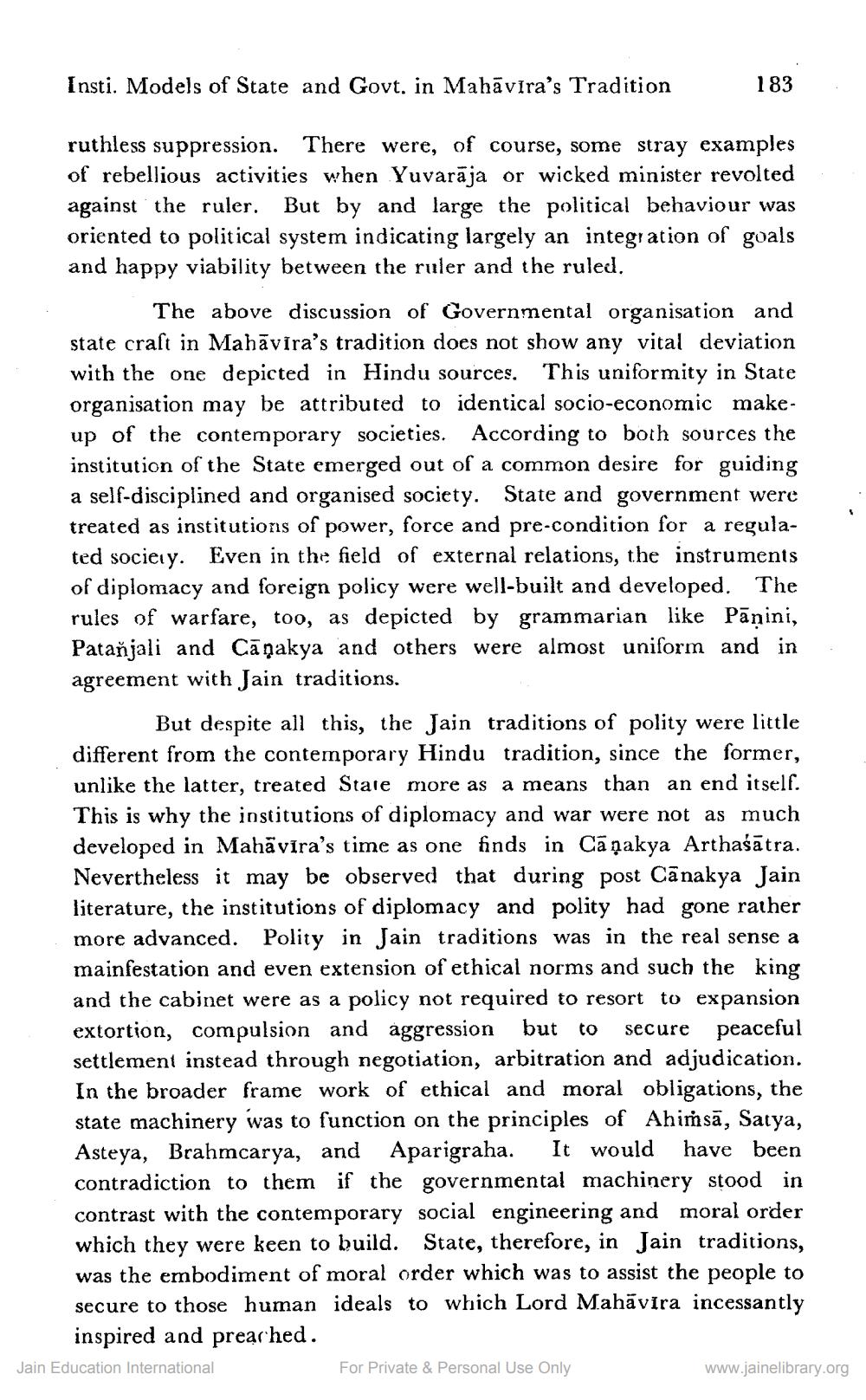________________
Insti. Models of State and Govt. in Mahāvira's Tradition
183
ruthless suppression. There were, of course, some stray examples of rebellious activities when Yuvarāja or wicked minister revolted against the ruler. But by and large the political behaviour was oriented to political system indicating largely an integration of goals and happy viability between the ruler and the ruled.
The above discussion of Governmental organisation and state craft in Mahāvíra's tradition does not show any vital deviation with the one depicted in Hindu sources. This uniformity in State organisation may be attributed to identical socio-economic makeup of the contemporary societies. According to both sources the institution of the State emerged out of a common desire for guiding a self-disciplined and organised society. State and government were treated as institutions of power, force and pre-condition for a regulated society. Even in the field of external relations, the instruments of diplomacy and foreign policy were well-built and developed. The rules of warfare, too, as depicted by grammarian like Pāṇini, Patanjali and Cā nakya and others were almost uniform and in agreement with Jain traditions.
But despite all this, the Jain traditions of polity were little different from the contemporary Hindu tradition, since the former, unlike the latter, treated State more as a means than an end itself. This is why the institutions of diplomacy and war were not as much developed in Mahāvīra's time as one finds in Cāņakya Arthaśātra. Nevertheless it may be observed that during post Canakya Jain literature, the institutions of diplomacy and polity had gone rather more advanced. Polity in Jain traditions was in the real sense a mainfestation and even extension of ethical norms and such the king and the cabinet were as a policy not required to resort to expansion extortion, compulsion and aggression but to secure peaceful settlement instead through negotiation, arbitration and adjudication. In the broader frame work of ethical and moral obligations, the state machinery was to function on the principles of Ahiṁsā, Salya, Asteya, Brahmcarya, and Aparigraha. It would have been contradiction to them if the governmental machinery stood in contrast with the contemporary social engineering and moral order which they were keen to build. State, therefore, in Jain traditions, was the embodiment of moral order which was to assist the people to secure to those human ideals to which Lord Mahāvīra incessantly
inspired and preached. Jain Education International For Private & Personal Use Only
www.jainelibrary.org




